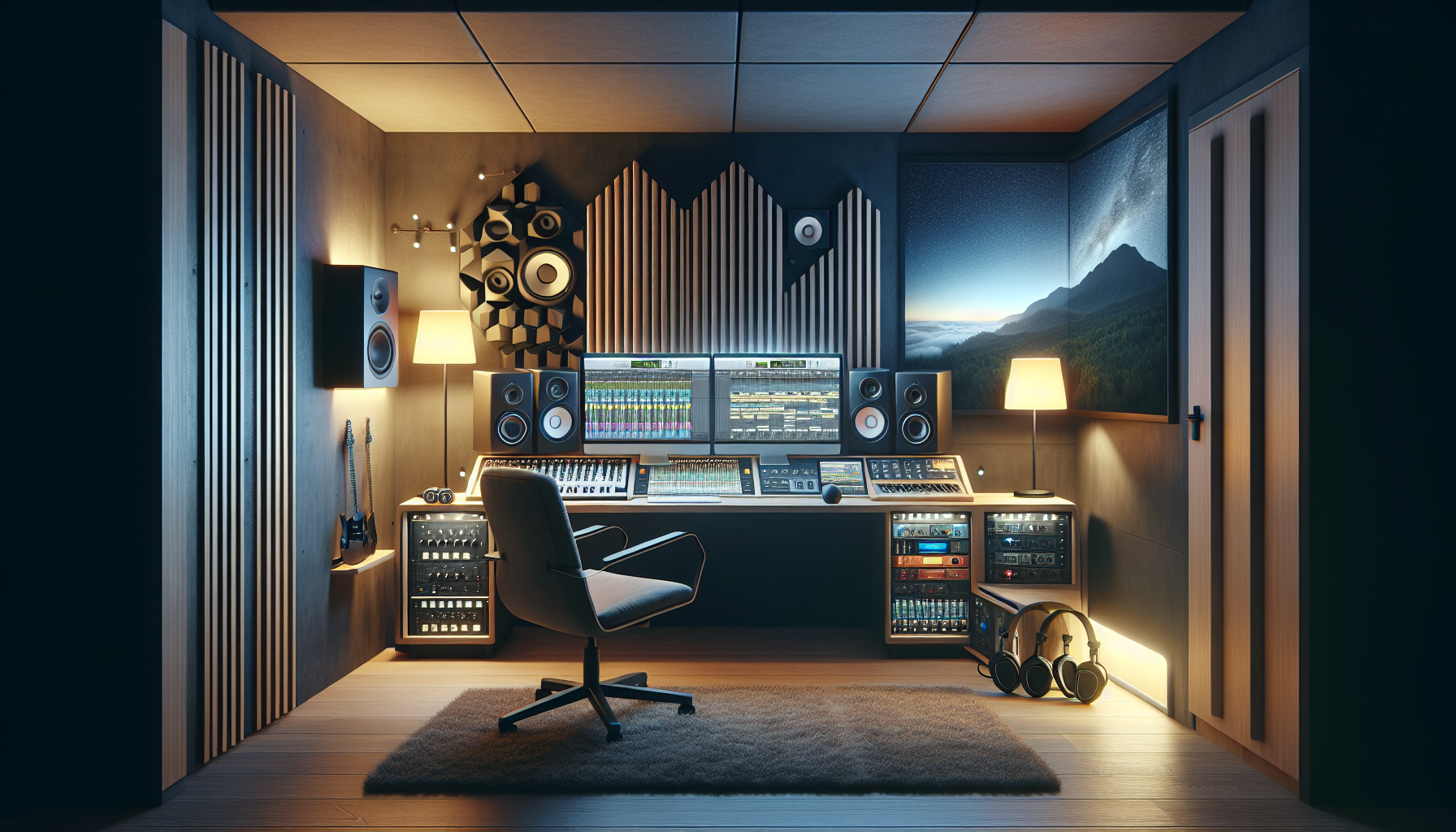Introduction to Mastering for Beginners
Mastering is the final polish of music production, essential for transforming a mixed track into a professional-sounding piece. It enhances the overall sound quality, ensures consistency across various playback systems, and brings the music to competitive loudness levels. For beginners, learning the transformation from an unmastered to a mastered track can be eye-opening, revealing the potential depth, clarity, and punch achievable. Though mastering may appear daunting, it is a skill that anyone can learn with dedication, offering immense satisfaction and the opportunity to elevate your music.
Pro Tip: Before you start mastering, listen to professionally mastered tracks in your genre to set a quality benchmark for your own work.
Must-Have Tools and Software for Mastering
Starting mastering at home requires a basic setup: a reliable computer, high-quality speakers, and headphones. For those new to the process, beginner-friendly software like Ozone by iZotope provides intuitive interfaces and robust tools. Equally important is your acoustic environment; a poorly treated room can deceive your ears. Invest in essential plugins like Equalizers, Compressors, Limiters, and Stereo Imaging tools to significantly improve your mastering capabilities.
Pro Tip: Choose headphones with a flat response to ensure accurate monitoring of your master.
Basic Mastering Techniques Explained
Mastering effectively relies on techniques like equalization, audio compression, and limiting. Equalization, or EQ, balances frequencies, making sure no frequency overpowers or lacks. Compression maintains a consistent level throughout the track, and limiting is essential to prevent distortion and maintain competitive loudness. Manipulating stereo width can also make your track sound larger and more immersive.
Pro Tip: When using EQ, opt for subtle cuts over boosts to preserve the natural sound quality.
Step-by-Step Guide to Mastering
To begin mastering, first import tracks into your mastering software and set initial levels conservatively to prevent clipping. Adjust the EQ to correct any frequency imbalances. Then, apply compression wisely to enhance dynamics without flattening them. Achieving industry-standard loudness while preserving dynamic range is crucial for consistent playback across all devices. Conclude your session with stereo enhancements and embedding the necessary metadata.
Pro Tip: Test your master on various listening devices to ensure consistent quality across different environments.
Common Mastering Errors and Prevention Tips
A common mistake in DIY mastering is over-compression, which can strip away life from the sound. Always watch for signs of reduced dynamic contrast. In EQ handling, avoid excessive adjustments as they can render the track unnatural. Additionally, resist the temptation to overly prioritize volume in the ‘loudness wars,’ as this can lead to a tiring listening experience. Strive for a natural and dynamic sound balance.
Pro Tip: Regularly take breaks and listen to reference tracks to maintain an objective perspective of your sound.
Exercises to Enhance Your Mastering Skills
Start with simpler mastering projects to practice your skills. Conduct A/B listening tests with professional tracks to evaluate the impact of your mastering decisions. Experimenting with various tools and methods will deepen your understanding of what suits different music types best. Also, be receptive to feedback from experienced engineers.
Pro Tip: Utilize spectrum analyzers and loudness meters to visually assist your mastering decisions.
Additional Resources for Mastering Education
To supplement practical experience, myriad resources like “Mastering Audio” by Bob Katz offer deep insights, while YouTube and other platforms provide professional tutorials. Engaging with online communities, such as Gearslutz, allows for the exchange of tips and advice. Apps and visual analysis tools also offer real-time feedback, enhancing your mastering process.
Pro Tip: Participate in workshops and webinars to learn from experts and network with peers.
Get Started with Mastering Today
Mastering is a crucial skill that significantly enhances the sound quality of your music. Equipped with the proper tools, techniques, and a dedication to ongoing learning, you can achieve professional-quality sound in your home studio. Dive into mastering and begin applying these techniques to your tracks today. The journey might seem challenging, but it is immensely rewarding as you push the boundaries of audio enhancement.
For more detailed guidance or personal support, don’t hesitate to contact our professional mastering services!

Leave a Reply